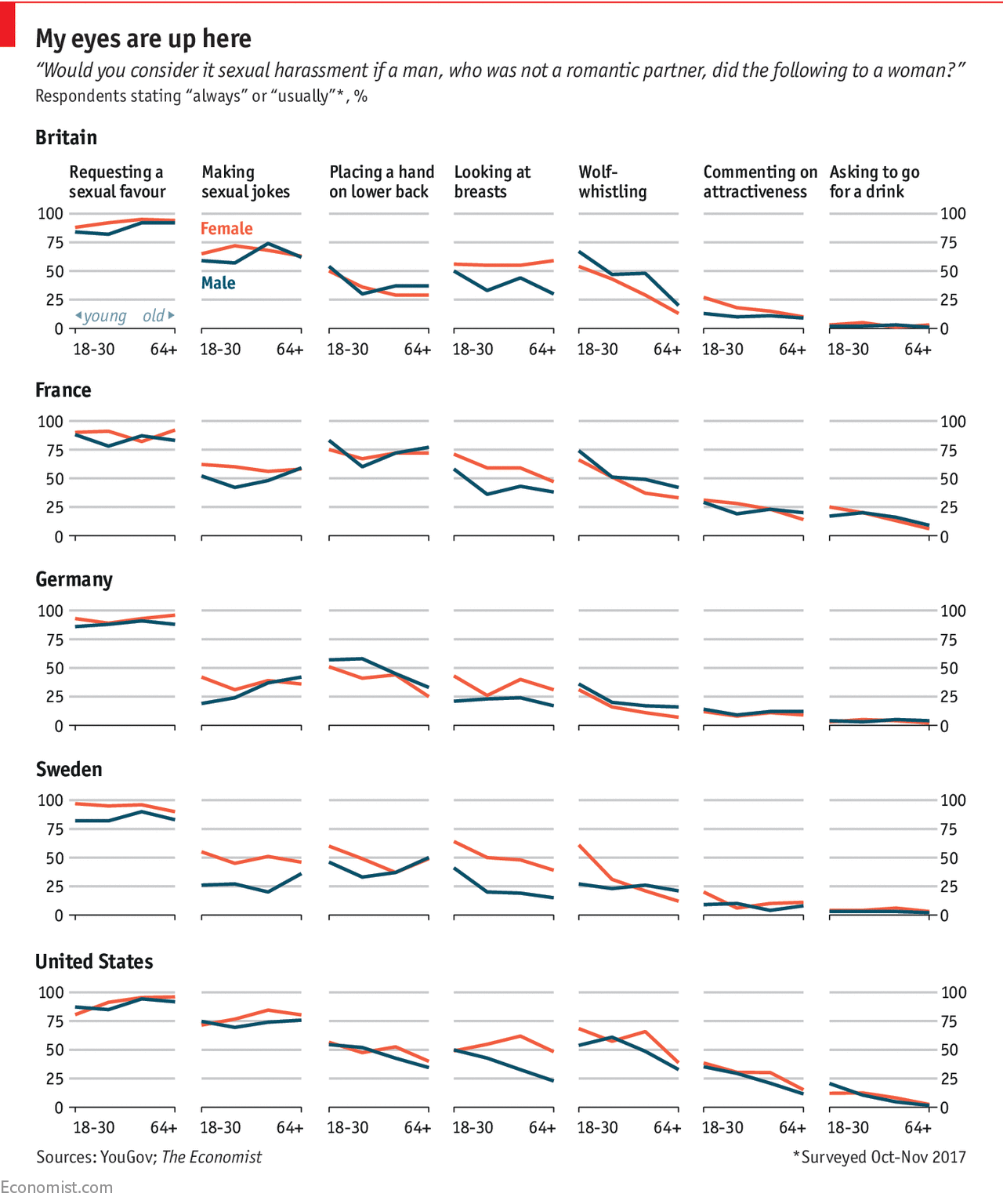Opinions on acceptable male behaviour vary by age, sex and nationality
HARVEY WEINSTEIN was the tip of a very large iceberg. In the month since allegations of sexual assault against the prominent film producer became public, a series of powerful men have been accused of sexual assault and harassment of co-workers. In just a few weeks, the #MeToo hashtag on social media, used to mark posts about similar experiences suffered by ordinary people, has been used some 5m times.
This avalanche of accusations has increased awareness of the prevalence of sexual harassment: 49% of male respondents to a poll by NBC Newsand the Wall Street Journal last month said that the news had made them think about their own actions around women. However, there is no clear consensus on exactly which behaviours cross the line. Instead, people in different countries and age groups appear to use very different definitions.
Latest updates
During the past month YouGov, a pollster, surveyed people in five Western countries about whether a series of behaviours by men towards women constitute sexual harassment. The questions ranged from actions that are often innocuous, such as asking to go for a drink, to overt demands for sex. The range of views was vast.
One consistent pattern that emerged was a generation gap. In general, younger respondents were more likely to think that a behaviour crossed the line than their older peers were. For example, over half of British women under 30 said that wolf-whistling was unacceptable. Less than a fifth of those over 64 felt that way.
Between men and women, differences of opinion emerged for specific questions. Both sexes tended to have similar views on whether a man who places his hand on a woman’s lower back or comments on her attractiveness has gone too far. However, female respondents were much less tolerant of men looking at women’s breasts than their male counterparts were: among Americans 64 and older, for example, half of women but just a quarter of men said they would consider such ogling sexual harassment.
A third source of variation was nationality. Swedish men, for example, seem to feel entitled to make sexual jokes around women: only a quarter of them said such behaviour would be harassment. In contrast, three-quarters of American men expressed that opinion. Similarly, a quarter of French women under 30 believe that even asking to go for a drink is harassment, whereas almost none of their counterparts in Britain and Germany share that view.
The magnitude of the reaction to the accusations against Mr Weinstein makes clear that a reckoning with abuses by men in the workplace was long overdue. Given how little agreement exists about the definition of sexual harassment, employers seeking to ensure a comfortable work environment may need to be more explicit about the boundaries of acceptable behaviour than they may have previously realised was necessary.


No comments:
Post a Comment